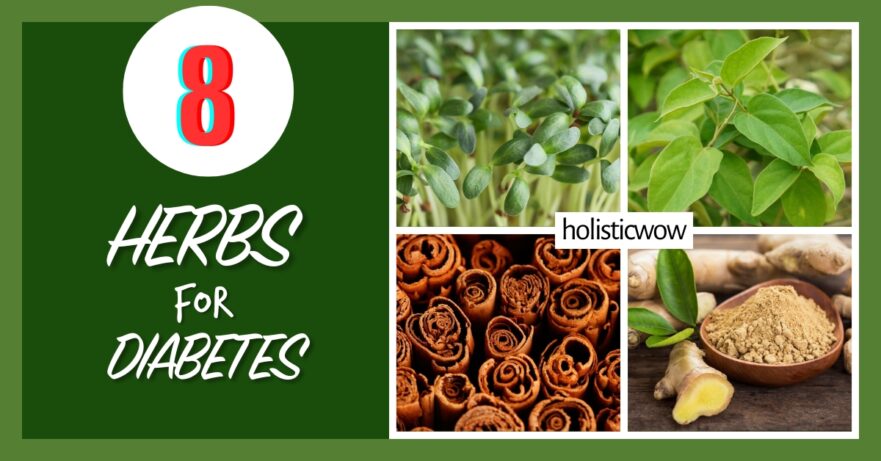In this article about herbs for diabetes:
🌿 Natural Herbs for Blood Sugar Management | 📜 Herbal Preparations and Recipes for Blood Sugar Management | ☯️ Integrating Herbs into Daily Life for Blood Sugar Management | 🌱 Navigating Herbs Safely
Diabetes is a chronic condition characterized by high blood sugar levels. It can lead to serious complications like heart disease, kidney problems, and nerve damage if left uncontrolled. Common symptoms include increased thirst, frequent urination, fatigue, and blurred vision.
Several herbs show promise in supporting blood sugar management. Research indicates that fenugreek, gymnema, cinnamon, ginger, and bitter melon may help improve insulin sensitivity and reduce blood glucose levels. These natural remedies offer potential benefits for people with diabetes.
While herbs can be helpful, they should not replace conventional diabetes treatments. It is crucial to work with your healthcare provider to develop a comprehensive management plan that may include herbs alongside medication, diet, and exercise.
Key Takeaways
- 🌿 Powerful herbal options: Fenugreek, Gymnema, and cinnamon show promise in supporting blood sugar management for people with diabetes.
- 🍎 Lifestyle enhancement: Herbal remedies’ benefits for blood sugar control can be amplified by combining them with a balanced diet, regular exercise, and stress management.
- ✨ Individual responses vary: While herbs show promise, their effectiveness can differ among individuals, necessitating personalized approaches and regular blood sugar monitoring.
🌿 Natural Herbs for Blood Sugar Management
Diabetes is a chronic condition characterized by elevated blood sugar levels. It occurs when the body either doesn’t produce enough insulin or can’t effectively use the insulin it makes. Common symptoms include increased thirst, frequent urination, unexplained weight loss, fatigue, and blurred vision. In type 2 diabetes, the most common form, the body becomes resistant to insulin or doesn’t produce enough.
Several herbs have been traditionally used to support blood sugar management. These include fenugreek (Trigonella foenum-graecum), Gymnema (Gymnema sylvestre), cinnamon (Cinnamomum), ginger (Zingiber officinale), bitter melon (Momordica charantia), goat’s rue (Galega officinalis), mulberry (Morus alba), and bilberry (Vaccinum myrtillus).
Uncontrolled diabetes can lead to severe complications affecting various organs, including the heart, kidneys, eyes, and nerves. Managing blood sugar levels through diet, exercise, and medication is crucial for preventing these complications and maintaining overall health. While conventional treatments remain the cornerstone of diabetes management, some people explore complementary approaches, including herbal remedies, to support their efforts in maintaining healthy blood sugar levels.
Fenugreek (Trigonella foenum-graecum)
Fenugreek (Trigonella foenum-graecum) is a herb with a long history of use in traditional medicine, particularly in India and the Middle East. It has been used for centuries to treat various conditions, including diabetes. Fenugreek seeds contain compounds that can help lower blood sugar levels. Some studies suggest [1] [2] that fenugreek can improve insulin sensitivity and decrease fasting blood glucose levels in people with type 2 diabetes. The herb may work by slowing down the absorption of carbohydrates in the digestive system and may also stimulate insulin production [3]. People with diabetes who use fenugreek may experience improved glucose tolerance and reduced cholesterol levels. While fenugreek is generally considered safe, it can interact with certain medications, particularly blood thinners and diabetes medications.
Gymnema (Gymnema sylvestre)
Gymnema (Gymnema sylvestre) is a woody climbing shrub native to India and Africa that has been used in Ayurvedic medicine for centuries. Gymnema is known for reducing sugar cravings and lowering blood glucose levels. The herb contains gymnemic acids, which can block sugar receptors on the tongue, temporarily altering the taste of sweet foods. This effect may help reduce sugar intake and cravings. Studies have shown that Gymnema can increase insulin production and improve glycemic control, leading to significant reductions in fasting plasma glucose levels [4]. These actions can lead to better blood sugar control in people with type 2 diabetes. Additionally, some research suggests that Gymnema may help regenerate pancreatic beta [5] cells that are responsible for producing insulin. While gymnema shows promise in diabetes management, more research is needed to fully understand its long-term effects and optimal dosage.
Cinnamon (Cinnamomum spp.)
Cinnamon (Cinnamomum spp.) is a popular spice used for thousands of years in traditional medicine. Recent studies have shown that cinnamon may benefit blood sugar control. Cinnamon contains compounds that can potentially mimic insulin and increase insulin sensitivity in cells. This action helps glucose enter cells more efficiently, potentially lowering blood sugar levels. Several studies have demonstrated that consuming cinnamon regularly may significantly reduce fasting blood glucose levels and improve insulin sensitivity [6] [7]. Cinnamon may also help lower cholesterol levels [8] and reduce inflammation [9], important factors in managing diabetes. The most common forms used for diabetes management are Ceylon cinnamon and Cassia cinnamon. It’s important to note that high doses of Cassia cinnamon can contain significant amounts of coumarin, which may harm the liver in large quantities.
Ginger (Zingiber officinale)
Ginger (Zingiber officinale) is a root used for centuries in traditional medicine systems worldwide. Ginger contains active compounds called gingerols and shogaols, which have anti-inflammatory and antioxidant properties. These compounds may help improve insulin sensitivity and reduce blood sugar levels. Studies have shown that consuming ginger regularly can lead to a modest decrease in fasting blood glucose levels and improved long-term blood sugar control in people with type 2 diabetes. Ginger may also help reduce inflammation, often elevated in people with diabetes [10]. This anti-inflammatory effect can potentially help prevent or manage diabetes-related complications [11]. Additionally, ginger can aid digestion and may help alleviate nausea, which can benefit people with diabetic gastroparesis. While ginger is generally safe for most people, it can interact with certain medications, including blood thinners and diabetes medications.
Bitter melon (Momordica charantia)
Bitter melon (Momordica charantia) is a tropical fruit used in traditional medicine systems, particularly in Asia and South America. Bitter melon contains several compounds that can help lower blood sugar levels. These include charantin, vicine, and polypeptide-p, which are thought to have insulin-like effects. Some studies have suggested that bitter melon can improve glucose tolerance and reduce fasting blood glucose levels in people with type 2 diabetes [12]. The fruit may also work by modestly increasing insulin sensitivity [13]. While bitter melon shows promise in diabetes management, more research is needed to determine the optimal dosage and long-term effects. It’s important to note that bitter melon can interact with some diabetes medications, potentially leading to hypoglycemia. Individuals taking diabetes medications should consult their healthcare provider before using bitter melon.
Goat’s rue (Galega officinalis)
Goat’s rue (Galega officinalis) is a herb traditionally used in Europe for diabetes management. Goat’s rue contains compounds called galegine, similar in structure to metformin, a common diabetes medication. These compounds can help lower blood sugar levels by potentially improving insulin sensitivity and reducing glucose production in the liver. Animal studies have shown that goat’s rue can reduce fasting blood glucose levels and improve long-term blood sugar control. However, human studies are limited. The herb may also have beneficial effects on cholesterol levels and body weight. Goat’s rue is the plant from which metformin was developed, highlighting its potential in diabetes management. However, it should be noted that goat’s rue can be toxic in large doses and can interact with other diabetes medications. Due to these potential risks, it’s crucial to consult with a healthcare provider before using goat’s rue.
Mulberry (Morus alba)
Mulberry (Morus alba) leaves have been used in traditional Chinese medicine for centuries to treat diabetes. Mulberry leaves contain compounds called 1-deoxynojirimycin (DNJ) and other alkaloids that can inhibit the absorption of carbohydrates in the intestines. This action can help prevent spikes in blood sugar levels after meals. Some human studies have shown that consuming mulberry leaf extract can potentially reduce post-meal blood glucose levels in people with type 2 diabetes [14] [15]. Mulberry leaves may also help improve insulin sensitivity and reduce inflammation. While mulberry shows promise in diabetes management, more research is needed to determine the optimal dosage and long-term effects. Mulberry leaf extract is generally considered safe but may interact with some diabetes medications.
Bilberry (Vaccinium myrtillus)
Bilberry (Vaccinium myrtillus) is a small, dark blue berry closely related to blueberries. Bilberry has been used in traditional European medicine for centuries to treat various conditions, including diabetes. Bilberries are rich in anthocyanins, powerful antioxidants that can help improve insulin sensitivity and reduce inflammation. Some studies have shown that consuming bilberry extract can improve glucose tolerance and reduce fasting blood glucose levels in people with type 2 diabetes [16]. Bilberries may also help protect against diabetic retinopathy, a common complication of diabetes, due to their beneficial effects on eye health. Some studies suggest that the antioxidants in bilberries can help strengthen blood vessels and improve circulation, which is particularly important for people with diabetes. While bilberry shows promise in diabetes management, more research is needed to understand its long-term effects and optimal dosage fully.
📜 Herbal Preparations and Recipes for Blood Sugar Management
Here are 5 herbal tea recipes designed to support blood sugar management, from less potent to more potent. These blends incorporate the herbs discussed earlier, and they have precise measurements and usage instructions.
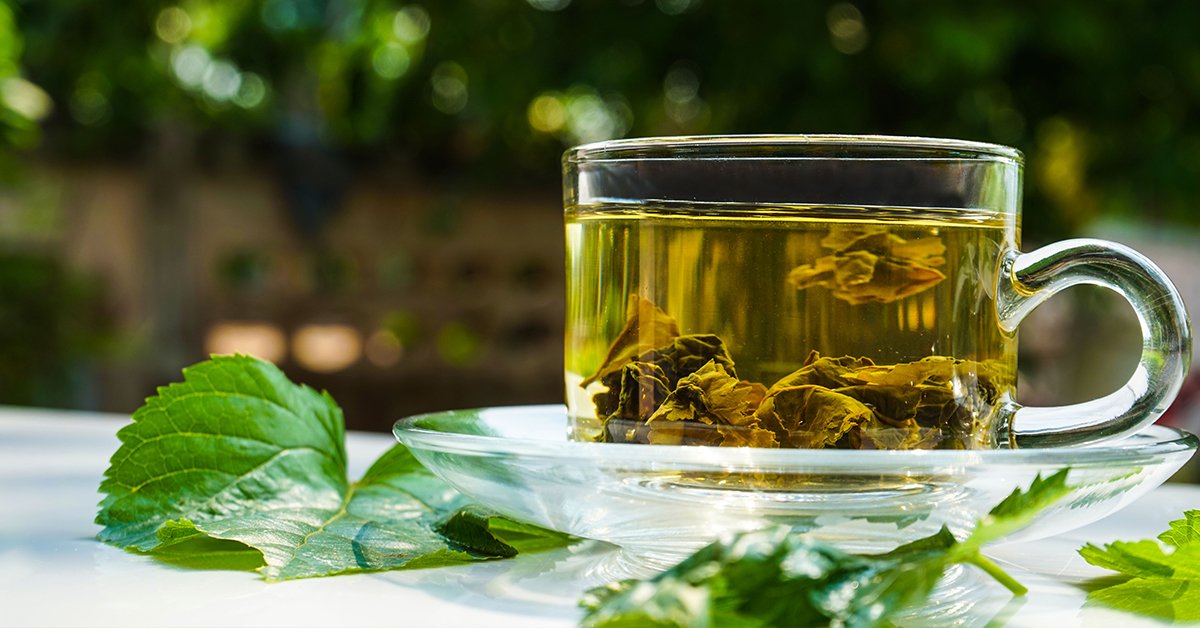
Gentle Glucose Balance Tea
Ingredients:
- 1 teaspoon dried mulberry leaves
- ½ cinnamon stick
- ½ teaspoon dried fenugreek seeds
- 1 cup of boiling water
Preparation:
- Combine all ingredients in a teapot.
- Add boiling water and steep for 10 minutes.
- Strain and drink once daily, preferably before breakfast.
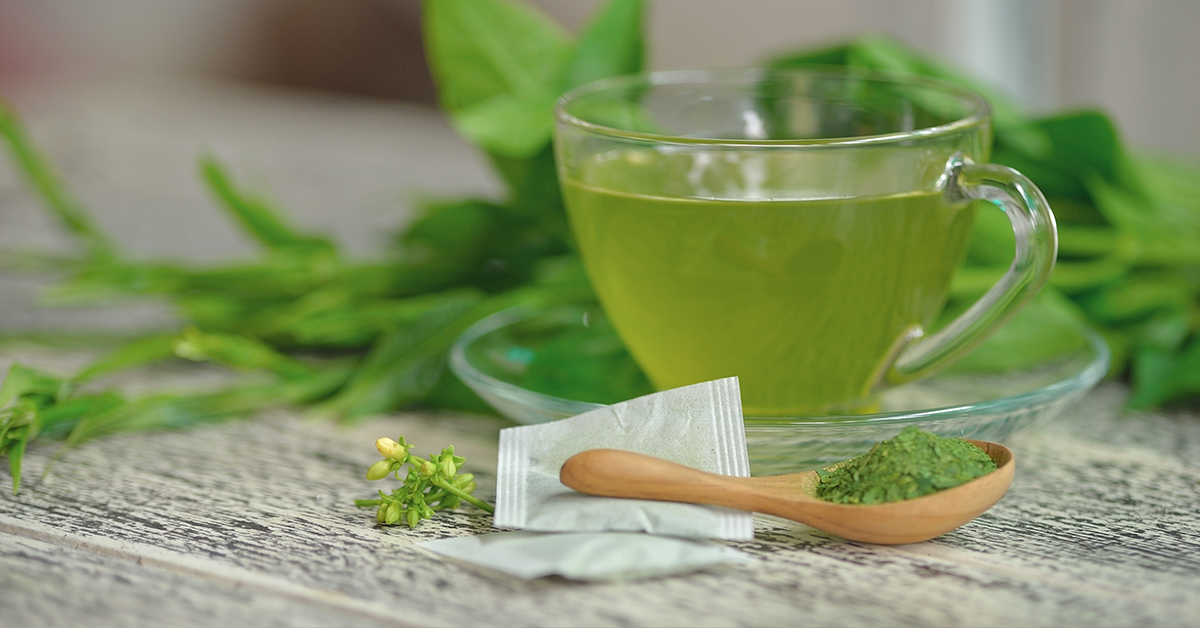
Metabolic Support Blend
Ingredients:
- 1 teaspoon dried bilberry leaves
- 1 teaspoon grated fresh ginger root
- ½ teaspoon dried gymnema leaves
- 1 cup of boiling water
Preparation:
- Mix herbs in a teapot, add boiling water, and steep for 15 minutes.
- Strain and drink twice daily, morning and evening.
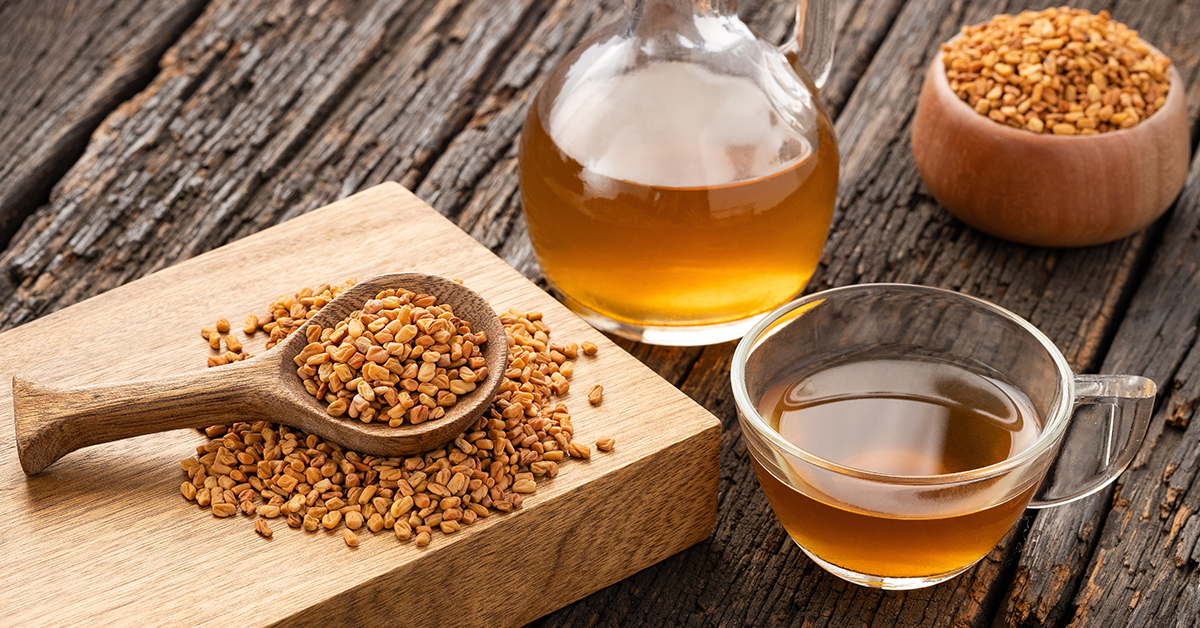
Glucose Regulation Tea
Ingredients:
- 1 teaspoon dried mulberry leaves
- ½ teaspoon dried fenugreek seeds
- ½ teaspoon dried gymnema leaves
- ½ teaspoon ground cinnamon
- 1 cup of boiling water
Preparation:
- Combine all herbs in a teapot.
- Pour boiling water over the herbs and steep for 10-12 minutes.
- Strain and drink once daily, preferably 30 minutes before lunch.
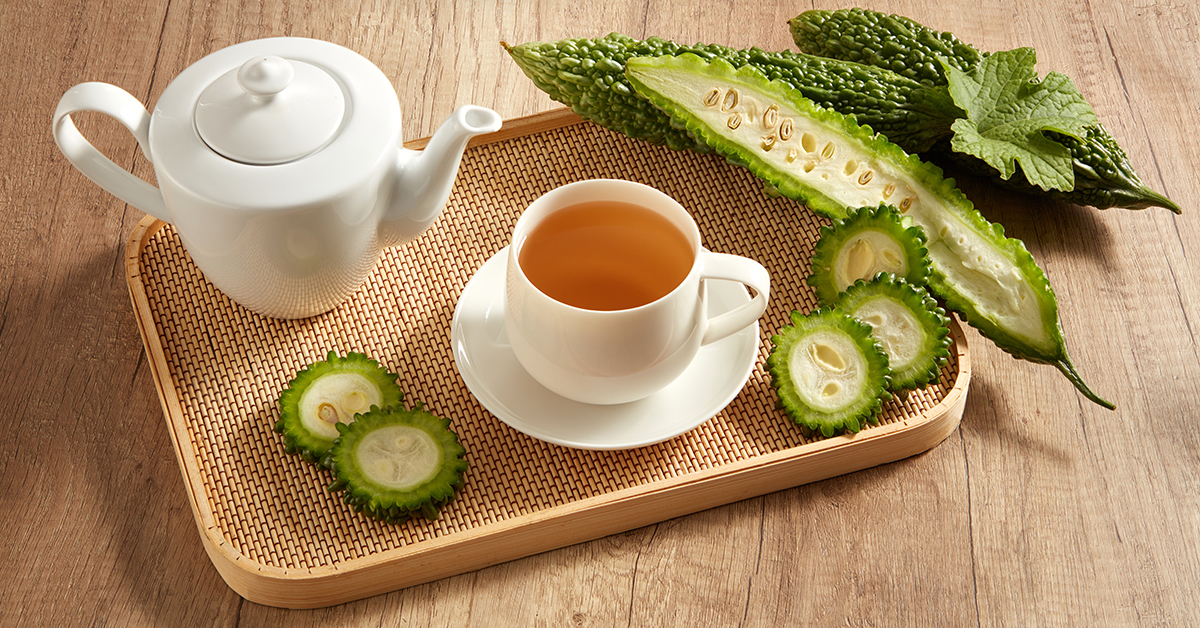
Comprehensive Glycemic Control Infusion
Ingredients:
- 1 teaspoon dried goat’s rue
- ½ teaspoon dried gymnema leaves
- ½ teaspoon grated fresh ginger root
- ½ cinnamon stick
- ¼ teaspoon dried bitter melon
- 1 cup of boiling water
Preparation:
- Mix all herbs in a teapot, add boiling water, and steep for 15-20 minutes.
- Strain and drink twice daily, morning and evening.
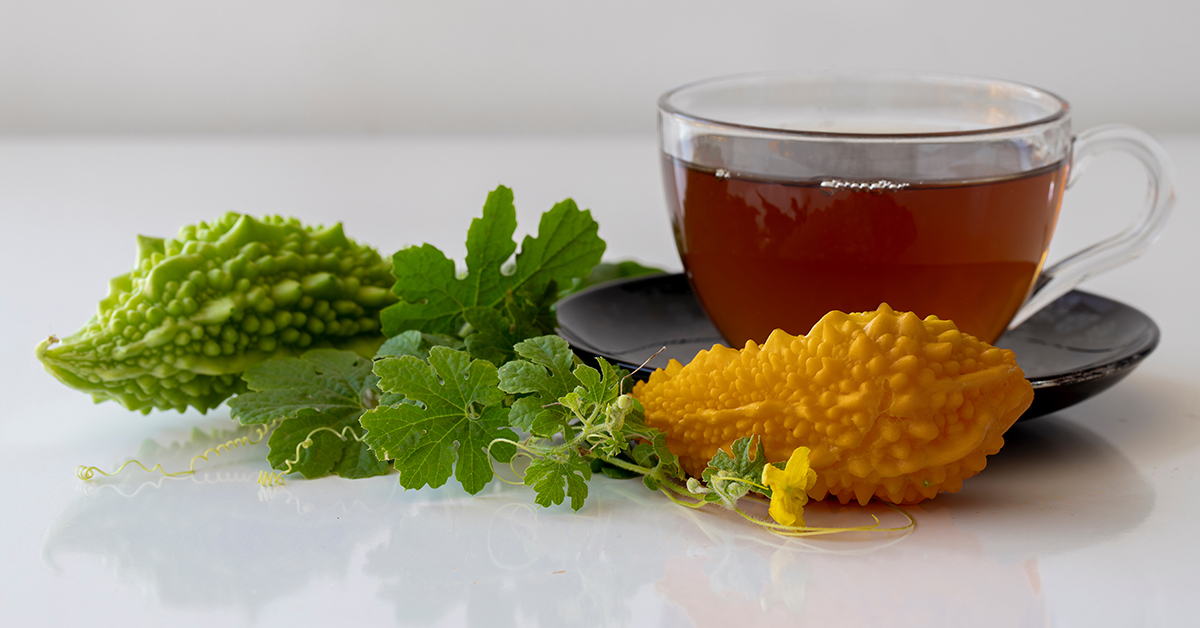
Potent Blood Sugar Balancing Blend
Ingredients:
- 1 teaspoon dried goat’s rue
- 1 teaspoon dried bilberry leaves
- ½ teaspoon dried fenugreek seeds
- ½ teaspoon dried gymnema leaves
- ¼ teaspoon dried bitter melon
- 1 cup of boiling water
Preparation:
- Combine all herbs in a teapot.
- Add boiling water and steep for 15-20 minutes.
- Strain and drink once daily in the morning, 30 minutes before breakfast.
These herbal tea recipes are designed to support blood sugar management. However, it’s crucial to consult with a healthcare provider before incorporating these herbal remedies into your routine, especially if you’re taking diabetes medications or have other health conditions. These teas should not replace prescribed diabetes treatments but can be used as complementary support under professional guidance.
☯️ Integrating Herbs into Daily Life for Blood Sugar Management
Incorporating herbs into your daily routine can support blood sugar management efforts. Here are practical tips for using herbs effectively and complementary practices to enhance their benefits.
Daily Use and Lifestyle Integration
- 🫖 Herbal Teas: Start your day with a cup of herb-infused tea. Teas made with fenugreek, gymnema, or cinnamon can become part of your morning routine, helping to set a positive tone for blood sugar management throughout the day. Consider having these teas to support post-meal blood sugar levels before lunch or dinner.
- 💚 Herbal Supplements: If you prefer not to drink herbal teas, consider taking herbs like fenugreek, gymnema, bitter melon or cinnamon in capsule or tincture form. These can be incorporated into your daily supplement regimen. Always follow recommended dosages.
- 🫚 Culinary Uses: Incorporate cinnamon and ginger into your cooking. Sprinkle cinnamon on oatmeal or add it to smoothies. Use fresh ginger in stir-fries or steep it in hot water for a warming drink.
Additional Practices to Support Blood Sugar Management
- 🥦 Dietary Adjustments: Focus on a balanced diet rich in fiber, lean proteins, and healthy fats. Include plenty of non-starchy vegetables and limit refined carbohydrates. This dietary approach can enhance the effects of herbal treatments for blood sugar management.
- 🏃♀️ Regular Exercise: Engage in regular physical activity, such as brisk walking, swimming, or cycling. Aim for at least 150 minutes of moderate-intensity exercise per week. Exercise helps improve insulin sensitivity and supports overall metabolic health.
- 🧘♀️ Stress Management: Practice stress-reduction techniques like deep breathing, meditation, or yoga. Chronic stress can negatively impact blood sugar levels, so managing stress is crucial for overall blood sugar control.
- 😴 Adequate Sleep: Prioritize getting 7-9 hours of quality sleep each night. Poor sleep can affect insulin sensitivity and blood sugar levels. Establish a consistent sleep schedule and create a relaxing bedtime routine.
- 🩸 Blood Sugar Monitoring: As recommended by your healthcare provider, regularly monitor your blood sugar levels. This can help you understand how different foods, activities, and herbal remedies affect your blood sugar.
Integrating these herbs and practices into your daily life can support your blood sugar management efforts. However, it’s essential to remember that herbs should complement, not replace, conventional diabetes treatments. While herbs like fenugreek, gymnema, cinnamon, ginger, bitter melon, goat’s rue, mulberry, bilberry, green tea, and garlic have shown potential benefits for blood sugar management, their effects can vary among individuals. Always start with smaller doses to see how your body reacts.
🌱 Navigating Herbs Safely
Starting with small doses is the first step when adding herbal remedies to your health routine. This approach lets you see how you respond and adjust amounts for the best effect, keeping safety in mind. While many herbs are safe, everyone’s body reacts differently. If you notice any side effects, it’s important to stop and think about what might be causing them.
Remember, herbs can sometimes interact with prescription medicines. These interactions might make your medicines work too well or not well enough, which is why talking to a healthcare provider or an herbalist is essential. This is especially crucial if you’re pregnant, breastfeeding, taking medications regularly, or have an existing health condition. Getting advice tailored to your situation can help you avoid any unnecessary risks.
For kids and older adults, being extra careful with herbs is important. Their bodies might react more strongly to herbal remedies, and the chance of side effects or interactions could be greater. Before giving herbal treatments to children or elderly family members, getting advice from a professional is a must to ensure their safety.
By being cautious and seeking expert advice when needed, you can make herbal remedies a safe part of your wellness plan. This careful approach allows you to enjoy the benefits of herbs while keeping yourself and your family safe.
While these herbs show promise, it’s important to note that research is still ongoing, and their effects can vary among individuals. It’s crucial to consult with a healthcare provider before incorporating herbal remedies into your diabetes management plan, especially if you’re taking medications. Herbs should complement, not replace, conventional diabetes treatments.
We hope you found useful, practical tips for integrating herbs into daily life, such as drinking herbal teas, using supplements, and incorporating herbs into cooking. Additional practices like maintaining a balanced diet, regular exercise, stress management, and adequate sleep are emphasized to support overall blood sugar management.
Remember, while herbs can be a helpful addition to diabetes management, they are not a cure-all. Always work with your healthcare team to develop a comprehensive approach to managing your blood sugar levels.
FAQ
What are the most effective herbs for managing blood sugar levels?
Several herbs have shown promise in supporting blood sugar management. Fenugreek (Trigonella foenum-graecum) contains compounds that can help lower blood sugar levels and improve insulin sensitivity. Gymnema (Gymnema sylvestre) may reduce sugar cravings and help lower blood glucose levels. Cinnamon (Cinnamomum) can potentially improve insulin sensitivity and lower fasting blood glucose levels. Ginger (Zingiber officinale) has anti-inflammatory properties that may help improve insulin sensitivity. Bitter melon (Momordica charantia) contains compounds that can help lower blood sugar levels by increasing insulin sensitivity and reducing glucose production in the liver. It's important to note that while these herbs show potential, their effectiveness can vary from person to person. Always consult with a healthcare provider before using any herbal remedies, especially if you're taking diabetes medications.
How do I safely incorporate herbs into my diabetes management plan?
To safely incorporate herbs into your diabetes management plan, consult your healthcare provider. They can help you determine which herbs might benefit your situation and advise on potential interactions with any medications you're taking. Start with small doses and gradually increase as tolerated. You can incorporate herbs into your diet through herbal teas, cooking with herbs like cinnamon or ginger, or taking supplements in capsule or tincture form. Monitoring your blood sugar levels regularly when starting any new herbal regimen is crucial to understand how it affects your body. Remember that herbs should complement, not replace, conventional diabetes treatments. Always continue following your prescribed treatment plan and make lifestyle changes as your healthcare provider recommends.
Are there any risks or side effects associated with using herbs for blood sugar management?
While many herbs used for blood sugar management are generally considered safe, they can have side effects or interact with medications. Fenugreek may cause digestive issues in some people and can interact with blood thinners. Gymnema might enhance the effects of insulin and other diabetes medications, potentially leading to hypoglycemia. Cinnamon, particularly in high doses, may cause liver damage in some individuals. Bitter melon can also interact with diabetes medications and may cause stomach upset. Some herbs may affect blood sugar levels more than expected, which could be dangerous for people on diabetes medications. Pregnant women should be especially cautious with herbal remedies. It's crucial to inform your healthcare provider about any herbs you use or plan to use. They can help monitor for potential side effects or interactions and adjust your treatment plan if necessary.

